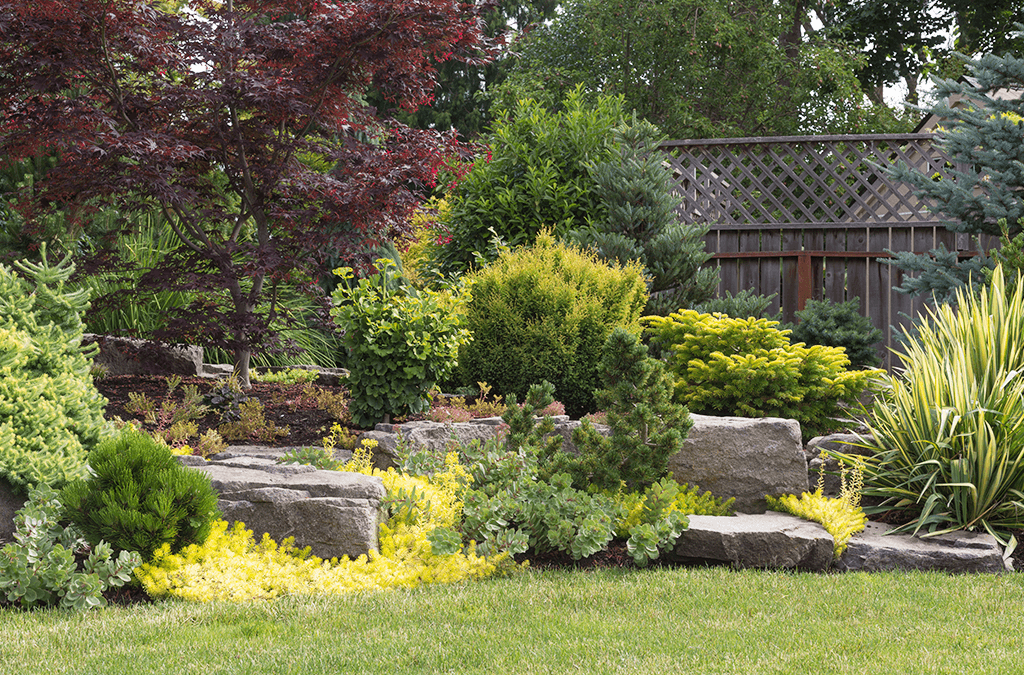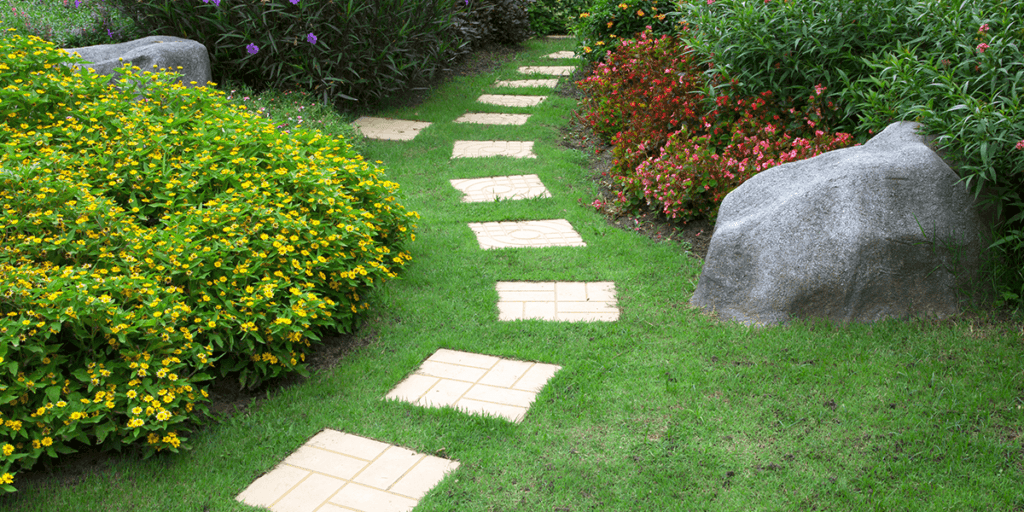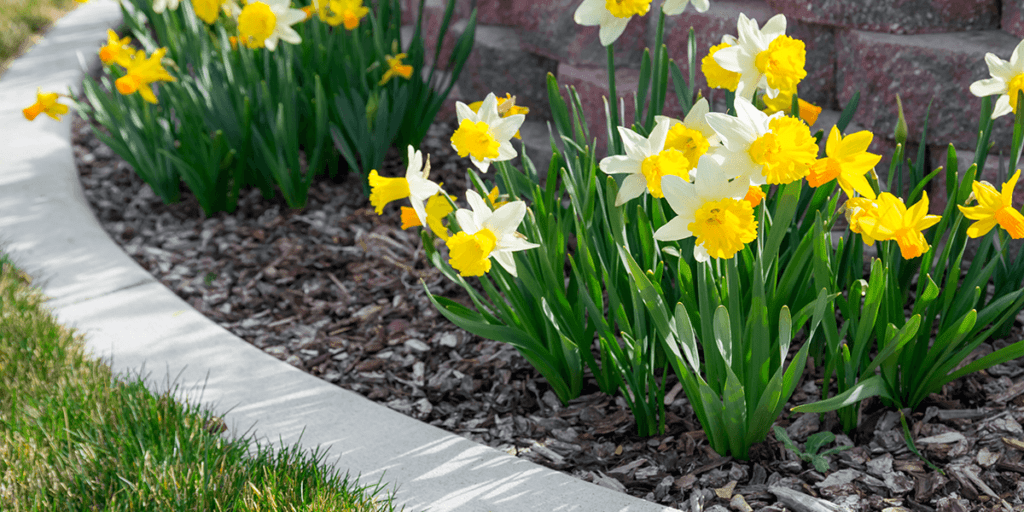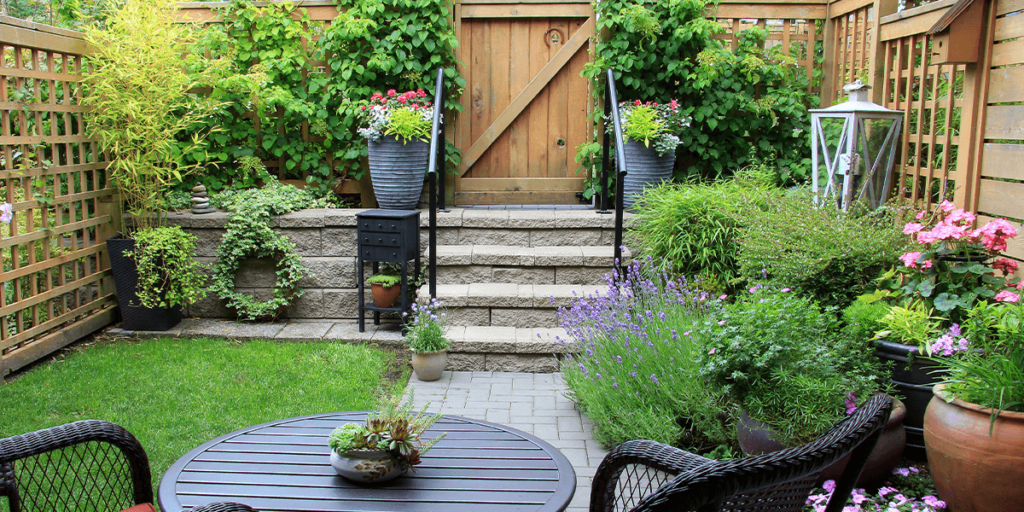What do you work with to create a landscape design? What are the different ingredients that come together to make beautiful places? Here are some of the important elements that any designer considers when creating a landscape!
Lines
Often overlooked in our daily life but key in landscape design, lines are what create borders between garden beds. Lines also direct our vision, shape the pathways we walk on and allow movement through a landscape visually and physically. They can be curving, wavy, straight, zigzag, or diffuse.
Form
The idea of form is so basic that we might not think it’s important, but it’s a fundamental element of design. It encompasses the shape, breadth, and height of trees, shrubs, perennials, and any structure in your landscape. Plants can be horizontal, weeping, vertical, conical, and pyramidal, among other possibilities. Form creates the three-dimensional structure of a design.
Color
When we talk about gardening, color is often the first thing that comes to mind. It’s important for creating the emotional mood and feeling of a place, as well as the aesthetic beauty and harmony. Blue brings serenity and calmness. Yellow brings joy and happiness. Each color expresses its own emotion, but the real magic happens when you put them together.
Texture
Texture is another element that creates the play of feelings and perspectives in a landscape; this includes the visual texture of plants, mulch, rocks, stonework, and any other surface. Plants with fine texture create a light, gentle feeling and distance dimension. Coarse textured plants stand out from the others and come into the foreground.
Balance
Balance is another tool that landscapers use in a design. A balanced landscape has a sense of stateliness and stability. In contrast, a landscape with more shrubs or planting to one side creates a sense of curiosity and movement. Whether designs strive for balance or imbalance, each arrangement has a unique effect on the viewer.
Scale
Scale is all about comparing the size of different elements and how their relationships create certain feelings. Grow a large tree in the middle of the small yard, and suddenly the surrounding shrubs seem small. In contrast, imagine a small plant surrounded by large ones. Scale is important, and creating places with different scales is one way to add variety and layers to a landscape.
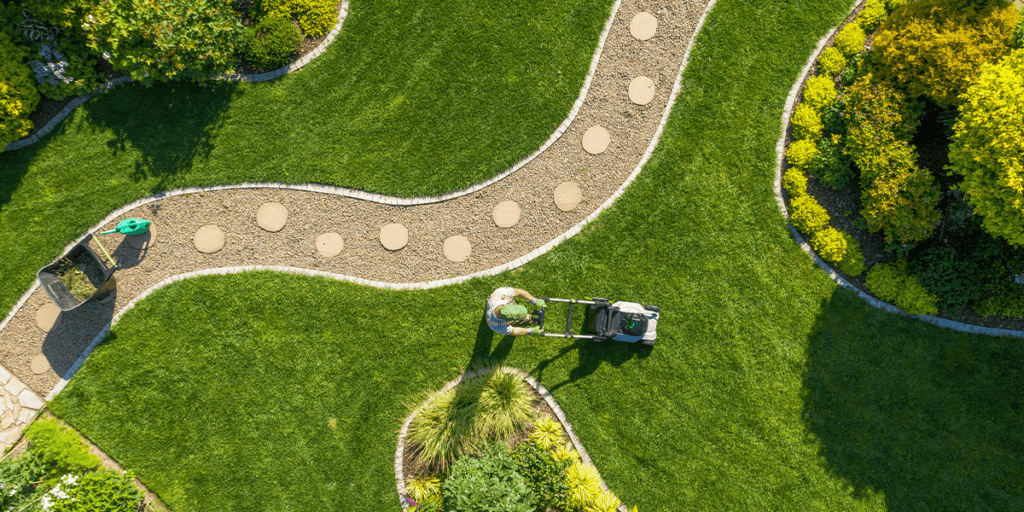
Unity
Unity is what holds a place together. You can create unity by using lines, forms, scale, balance, color, texture, and other elements. The type of plantings also has a big impact on the feeling of unity in a landscape. Imagine the differences between a bed full of native prairie perennials versus one with shade plants. Unity also organizes different places in a landscape and creates common threads or storylines between them.
Style
Some landscapes are inspired by a particular style, like an English garden, a rock garden, a zen garden, or a modern landscape. Another approach to style is to let the natural genius of a place come alive by planting native species that would grow there naturally. The founder of American landscape architecture, Frederick Law Olmstead, highly valued this approach.
Life
How alive is your landscape? This is an important question for anyone who cares about the ecological value or biodiversity of a place. More plant diversity generally brings more pollinators, beneficial insects, and butterflies to a yard, which in turn attracts more birds. You can measure diversity, but you can also feel the hum of life around you and observe the increased beauty.
If you ever want more information about landscaping, please visit our landing page. You’ll find all the ways to access our professional landscaping services and many more resources to inspire your designs!
Platt Hill Nursery is Chicago’s premier garden center and nursery.

